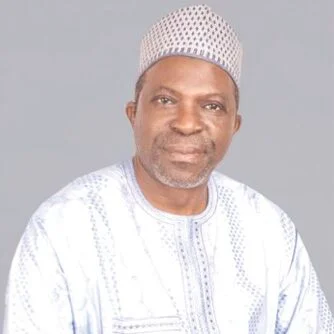Metro
Sanwo-Olu Inaugurates 13 Projects Across Lagos

Gov. Babajide Sanwo-Olu of Lagos State on Wednesday, inaugurated 13 projects in eight Local Government Areas (LGAs) of the state.
The projects were inaugurated in Amuwo-Odofin, Badagry, Agege, Ojo, Alimosho, Ifako Ijaiye, Ikeja and Ajeromi Ifelodun LGAs.
The inauguration of the projects was part of the 11-day programme lined up to celebrate the performance of Gov.
Sanwo-Olu and his deputy, Dr. Obafemi Hamzat, in the first term of their administration, with a promise of improved performance to effectively achieve “A Greater Lagos Rising,” vision.The projects inaugurated were: School of Basic Medical Science Block, 120 Bed MCC (SDG Building), Ambulance Bay, Special Services Centre House Officers’ Quarters at Lagos State University Teaching Hospital (LASUTH) and newly rehabilitated Mba-Cardoso Street, Ajegunle.
Others are: Akesan Obadore Road, Alimosho; Ikeja Town Square and unveiling of the newly installed Heidelberg Speedmaster CX 104-5+LX Machine at Lagos State Printing Corporation, Ikeja.
They included constructed jetties with waiting shelters and shoreline protection at Marina and Isaju-Ajido in Badagry as well as at Ilashe and Ijegun-Egba in Amuwo-Odofin.
Other projects inaugurated were Government Girls Senior College in Agege, Alimosho Junior Grammar School and Ijaiye Housing Estate Junior Secondary School, Alimosho; newly constructed Primary Healthcare Centre, Ijedodo in Iba LCDA, Ojo and Ijaiye Ojokoro Senior High School, Ifako Ijaiye.
Gov. Sanwo-Olu was represented during the inauguration held simultaneously in 13 places by Hamzat, Secretary to the Lagos State Government, Mrs Folashade Jaji; Chief of Staff, Mr Tayo Ayinde; Head of Service, Mr Hakeem Muri-Okunola; Deputy Chief of Staff, Mr Gboyega Sayanwo; Commissioners and Permanent Secretaries, among others.
Gov. Sanwo-Olu said the provision of the different projects was to ensure the delivery of modern medical facilities that would strengthen the capacity of the state’s healthcare system ostensibly to meet the needs of the people.
The governor was represented by Hamzat at the inauguration of the medical infrastructure projects at the Lagos State University Teaching Hospital (LASUTH) Ikeja.
He said the facility had been provided in fulfillment of his administration’s promises and commitment to the people of Lagos State, under the Health and Environment Pillar of the THEMES development agenda.
He appreciated the Senior Special Assistant to the President on Sustainable Development Goals (SDG), Princess Adejoke Orelope-Adefulire, for the donation of a 124 Bed-SDG Multipurpose Medical Building.
“I have no doubt that with this facility, and several others, we are on the path to improving our nation’s Human Capital Development Index and achieving the set targets under the United Nations Sustainable Development Goals,” Sanwo-Olu said.
He said the building was equipped with modern medical care facilities, comprising four medical schools in the areas of Anesthesia Technology, Echo Cardiograph, Orthopedic Cast Technology and Post Graduate Nursing.
According to him, this will significantly raise the status of LASUTH as a leading/award-winning Medical School and Centre of Excellence in Healthcare Service Delivery.
Speaking earlier, Orelope-Adefulire said Lagos State, being the most populous state in the country deserved the provision of necessary medical infrastructure.
At the inauguration of Mba-Cardoso Street in Ajeromi-Ifelodun Local Government Area, Gov. Sanwo-Olu, represented by his deputy, said the administration would continue to expand the transportation sector.
He said his administration was committed to improving commuters’ travel experience, saving important man-hours; providing better riding surfaces; boosting interconnectivity and generally making life more meaningful for commuters in Lagos State.
Special Adviser to the governor on Works and Infrastructure, Mrs Aramide Adeyoye, said the Sanwo-Olu administration had kept its promise to improve the quality of life of the people and drive massive socio-economic growth through infrastructure upgrade and renewal.
“The commitment of this administration to put in place infrastructure that will enhance the well-being of Lagosians and empower them across economic activities is brought to the fore,” Adeyoye said.
In his remarks, the Chairman of Ajeromi-Ifelodun Local Government Area, Mr Fatai Ayoola, said the rehabilitation of the Mba-Cardoso road had brought great relief to the residents of Ajeromi-Ifelodun.
He said the rehabilitation of the 3-kilometre road was “a dividend of democracy,” reaching the doorsteps of the masses in Ajegunle, through the Lagos State government capacity-driven administrative insight.
While inaugurating the upgraded jetties with waiting shelters and shorelines in Badagry, Gov. Sanwo-Olu expressed delight at the completion of the projects that would protect the populace of Ijegun Egba and its environs.
The governor, represented by the Special Adviser on Economic Planning and Budget, Mr Adebayo Sodade, assured residents of his government’s commitment to completing ongoing jetty constructions and enforcing safety regulations to ensure safe travel on the waterways.
He said the inauguration of the multiple jetties reflected the Lagos State government’s commitment to improving transportation infrastructure, enhancing water transportation, and reducing travel time for Lagos residents. (NAN)(
Metro
Catholic Church Welcomes New Apostolic Nuncio

The Catholic Church in Nigeria has welcomed the newly-appointed Apostolic to Nigeria, Archbishop Michael Francis Crotty.
Crotty, an Irish, was appointed by the Vatican.
He will oversee the propagation of the gospel of Jesus Christ through the church in Nigeria.
The position, an ambassadorial status, advances cohesion in the body of Christ.
In his welcome message for Crotty on Tuesday, the President of Catholic Bishops Conference of Nigeria (CBCN), Archbishop Lucius Ugorji, said that the Church was glad to receive him.
The CBCN president, who is also the Archbishop of Owerri Catholic Archdiocese, said,” With joy and gratitude to God, I extend a hearty welcome to Archbishop Michael Francis Crotty on behalf of the Catholic Bishops Conference of Nigeria, clergy, religious and lay faithful in Nigeria.
“We are thankful to His Holiness, Pope Francis, for appointing Archbishop Michael Francis Crotty as the Apostolic Nuncio to Nigeria to build on the good works of his predecessor, Archbishop Antonio Filipazzi.
“His appointment is a testament to the strong spiritual bond between our countries,” he said.
He said that although Crotty was the first Apostolic Nuncio from Ireland to serve in Nigeria, many Irish missionaries had played significant roles in spreading the gospel in Nigeria.
“We appreciate Archbishop Crotty’s acceptance of serving in Nigeria and assure him of our full support and cooperation.
“We pray for a fruitful mission and a blessed tenure for our excellency,” he added. (NAN)
Metro
Boundary Commission to Provide Infrastructure Along Disputed Boundary Areas

The National Boundary Commission (NBC), says it has concluded plans to provide infrastructure in flash locations along interstate boundaries to encourage integration and cooperation.
The Director-General of the commission, Mr Adamu Adaji, stated this in an interview in Abuja on Wednesday.
Adaji said that the commission would look at flash point areas and provide infrastructures that would encourage cooperation and integration among border communities.
He said that the goal was to see how the commission could bring people in border communities together to share from a common facility.
This, according to him, will douse tension and bring some kind of understanding among border communities.
“The bounder communities will share the facilities, which in the long run will bring the people together and eventually reduce tension and boundary conflicts.
“This is a way of encouraging integration and cooperation by encouraging people to come together, relate with one another and engage in beneficial commercial activities.”
Adaji said that a similar initiative was test runed with a borehole, constructed boundary corridor in Ado Local Government Area of Benue state, where it shared boundary with Ebonyi.
“We have also been able to construct some market stalls in the Ebonyi sector of the boundary between Ebonyi and Cross River,” he added.
“So, our appeal is for people to appreciate, cooperate and understand that boundaries are not barriers.
“The boundary line will not stop somebody from owning properties across and that is what we want to partner with the states to educate people along by the boundary corridors. (NAN)
Metro
Recertification: NCAA Suspends 10 Private Jet Operations

The Nigeria Civil Aviation Authority (NCAA) has suspended ten private jet operations over failure to begin recertification process.
This is contained in a statement signed by Mr Michael Achimugu, Director, Public Affairs and Consumer Protection on Friday in Abuja.
The agency said the Nigeria Civil Aviation Regulations 2023 Part 18.
3. 4 forbids holders of Permit for Non Commercial Flights (PNCF) from using their aircraft for carriage of passengers, gargo or mail for hire or rewards (commercial operation or charter services)“As a result of flagrant disregard of this rule, the NCAA had earlier directed all holders of PNCF to undergo re-evaluation which should have been concluded by the April 19, 2024.
“To this end, the NCAA has suspended the PNCF
of Azikel Dredging Nigeria Ltd, Bli-Aviation Safety Services, Ferry Aviation Developments Ltd and Matrix Energy Ltd.
” Also Marrietta Management Services Ltd, Worldwide Skypaths Services, Mattini Airline Services Ltd, Aero Lead Ltd, Sky Bird Air Ltd and Ezuma Jets Ltd.
“The public is hereby notified that it is illegal to engage PNCF holders for commercial purposes. The NCAA will not hesitate to initiate enforcement actions against any PNCF holder found guilty of illegal operations,” the agency said.
The agency said that its officials had been deployed to General Aviation Terminals (GAT) and private wings of the airports to monitor activities of the PNCF holders. (NAN)



























